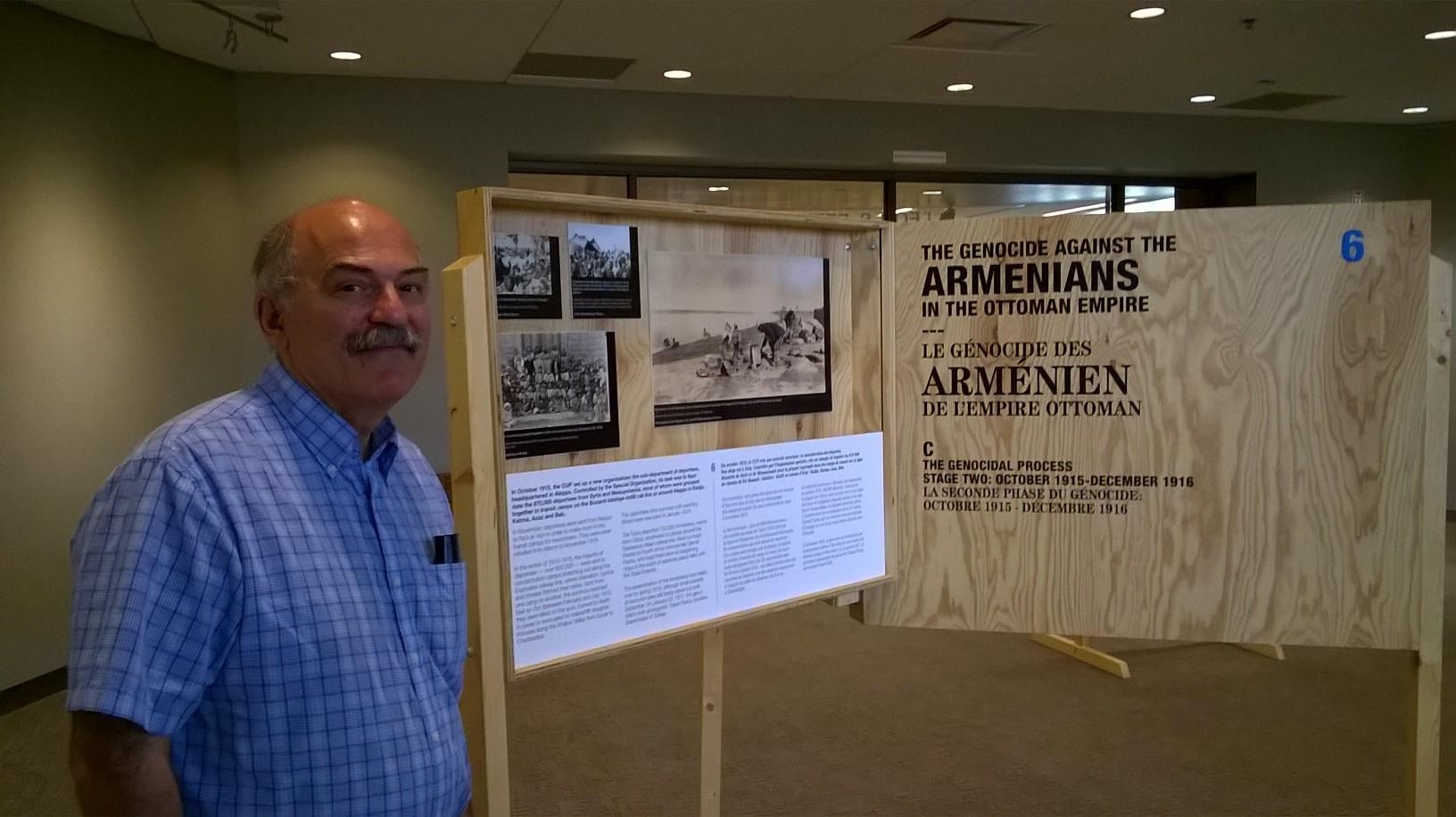Students can learn about and connect to a tragic part of our diverse histories at “Genocides of the 20th Century,” an exhibit in the Henry Madden Library.
Barlow Der Mugrdechian, organizer for the exhibit, said the exhibit gives the history of the Armenian and Rwandan Genocides, and Jewish Holocaust, so interested students can learn about and gain perspective on these tragedies.
“It’s a way to teach students about the concept of genocide. What it is, the people who’ve experienced it, and how to prevent it,” Mugrdechian said.
The exhibit officially opens on Sept. 1 in the Leon S. Peters Ellipse Gallery on the second floor of the library. The exhibit closes Oct. 31.
Jessica Piffero, communications specialist, said the exhibit took a few days to set up after Memorial De La Shoah created the exhibit pieces.
“They connected with Barlow and the library to have the exhibition here,” Piffero said.
Piffero encourages students who come to the library to check the exhibit out.
“While you’re here just take a moment to walk through this exhibition. You might learn something new,” Piffero said. “Students should take advantage of this opportunity.”
Mallory Coit, a student, perused the exhibit before its official opening date.
“I saw the sign and felt like learning about it,” Coit said. “It’s a bold-ish statement.”
Coit said that the exhibit is timely because of the way our government is handling things.
“In the Holocaust, Jewish children were separated from their families. Now we’re separating immigrant children from their families,” Coit said.
Sayra Ochoa, a student, said she didn’t know about the exhibit, but thinks students can learn a lot about recent genocides.
“Most of the ones (genocides) that are here are the ones not being talked about as much,” Ochoa said.
Mugrdechian said if students were interested in learning more about the Armenian Genocide, there would be a lecture on it Sept. 21.
Mugrdechian said these events are important because many Armenians came to the Central Valley as survivors of genocide.
“It’s a way to understand the experience of these people,” Mugrdechian said. “If you look at the world, there’s a lot of problems in the world. It (genocide) is a recurring problem.”
“We want to remember, but we also want to prevent those sorts of things.”
For more information visit library.fresnostate.edu.




